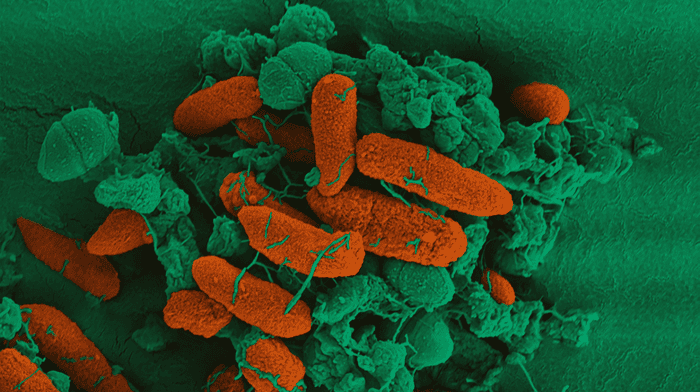Bacteria strain, Bacillus subtilis PXN® 21®, can slow – and even reverse build-up of a protein associated with Parkinson’s, new research in worms suggests.
Building on previous research linking brain function to gut bacteria, this study in a Parkinson’s model of roundworms, identified that a strain, Bacillus subtilis PXN® 21®, helped prevent the formation of toxic clumps that starve the brain of dopamine, a key chemical that coordinates movement. These new findings could pave the way for future studies that gauge how supplements such as live bacteria impact the condition.
THE RESEARCH

In the brains of people with Parkinson’s disease, alpha-synuclein protein misfolds and builds up, forming toxic clumps. These clumps are associated with the death of nerve cells responsible for producing dopamine. The loss of these cells causes the motor symptoms associated with Parkinson’s, including freezing, tremors and slowness of movement.
The researchers from the Universities of Edinburgh and Dundee used roundworms altered to produce the human version of alpha-synuclein that forms clumps. They fed these worms with different types of over-the-counter live bacteria supplements to see if bacteria in them could affect the formation of toxic clumps.
The scientists found that the strain called Bacillus subtilis PXN® 21® had a remarkable protective effect against the build-up of this protein and also cleared some of the already formed protein clumps. This improved the movement symptoms in the roundworms.
The researchers also found that the bacteria was able to prevent the formation of toxic alpha-synuclein clumps by producing chemicals that change how enzymes in cells process specific fats called sphingolipids.
The study published in the journal Cell Reports, was funded by Parkinson’s UK, the EMBO and the European Commission.
To read the study click here.
WHAT PEOPLE ARE SAYING

This is the latest in a number of recent studies which have found a link between brain function and the thousands of different kinds of bacteria living in the digestive system, known as the gut microbiome. Other studies into mice have found that the gut microbiome has an impact on the motor symptoms.
Lead researcher, Dr Maria Doitsidou, from the Centre for Discovery Brain Sciences at the University of Edinburgh, said:
“The results provide an opportunity to investigate how changing the bacteria that make up our gut microbiome affects Parkinson’s. The next steps are to confirm these results in mice, followed by fast-tracked clinical trials since the supplement we tested is already commercially available.”
Dr Beckie Port, Research Manager at Parkinson’s UK, said:
“Changes in the microorganisms in the gut are believed to play a role in the initiation of Parkinson’s in some cases and are linked to certain symptoms, that's why there is ongoing research into gut health and probiotics.
The results from this study are exciting as they show a link between bacteria in the gut and the protein at the heart of Parkinson's, alpha-synuclein. Studies that identify bacteria that are beneficial in Parkinson's have the potential to not only improve symptoms but could even protect people from developing the condition in the first place.”
Dr. Ashton Harper (Medical Director at ADM Protexin Ltd) commented:
"This ground-breaking research takes us one step closer to unravelling the pathophysiology and treatment of Parkinson’s disease. Recent advances in the management of Parkinson’s disease now enable many to achieve a normal life expectancy, however, the quality of life can often be severely impaired. Options to prevent, treat, and delay onset and progression would therefore represent a major breakthrough. Human clinical trial data utilising this technology is eagerly awaited."








